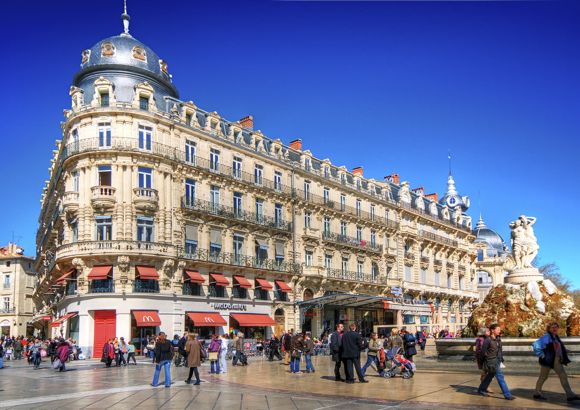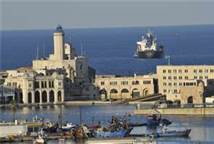My assignment from the U.S. State Department to the North African nation of Algeria in 1993 was supposed to last two years. I was evacuated out within a few months of my arrival because of terrorism concerns for embassy personnel. I’ve always felt a sense of loss for not completing that assignment, something like one feels for a lost friend.
A few weeks before I left, I had accompanied the ambassador on a “show the flag” trip around the northern section of the country. I got to know our Algerian driver, a Berber from the mountainous Kabyle region. We visited several sights, including an ancient Islamic mosque. The stone walls around its well were scarred from more than a millenary of providing water for the faithful to wash before the call to prayer.
Just after my arrival to the capital, Algiers, I had visited a Christian church. It was open to the public, but the lay worker reading papers at a desk as we entered seemed nervous. I’ve often wondered what happened to him and his church when the country shut down because of the terrorism.
I thought about these people again when I read an article by Stephanie Saldana, “The Martyr in Street Clothes” in Plough (Spring 2020).
I left Algeria in December, 1993. A group of monks who had chosen to stay and serve in that country were kidnaped and killed in 1996 by extremists. Their story is told in the film Of Gods and Men.
Another incident occurred in August 1996, when a bishop, Pierre Claverie, and his Muslim driver, Mohamed Bouchikhi, were killed in a bomb blast. Mohamed, a Muslim, had grown up next to the bishop’s church and become a volunteer there. Pierre at one time, concerned for the death threats he was receiving, asked Mohamed to consider no longer helping so that he would not be in danger. Mohammed became upset that the bishop would consider such a thing. Thus, they were killed together.
I studied the picture of the painting along with the article in Plough. All these martyrs are depicted, including Mohamed, in his street clothes, beside a small depiction of a mosque.
I have loved other assignments—in Saudi Arabia and Tunisia and Canada—but I will always grieve for the one in Algeria.


 Years later on an afternoon in Marseille, France, my husband and I searched for a place to eat. We had arrived in the French coastal city to spend one night before heading out early the next day on a ferry. It would take us across the Mediterranean to the historic city of Algiers.
Years later on an afternoon in Marseille, France, my husband and I searched for a place to eat. We had arrived in the French coastal city to spend one night before heading out early the next day on a ferry. It would take us across the Mediterranean to the historic city of Algiers. Yes, in a couple of days we would climb the hill out of Algiers’ Casbah and follow the narrow streets into an uncertain future in that troubled land. But for the moment, the music calmed my anxieties and prepared me to cope with what lay ahead.
Yes, in a couple of days we would climb the hill out of Algiers’ Casbah and follow the narrow streets into an uncertain future in that troubled land. But for the moment, the music calmed my anxieties and prepared me to cope with what lay ahead.